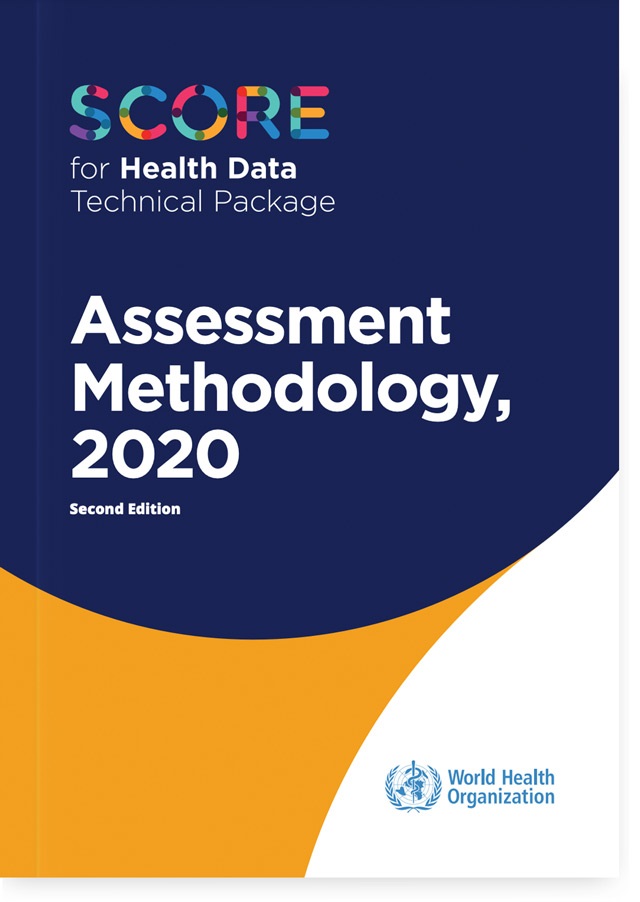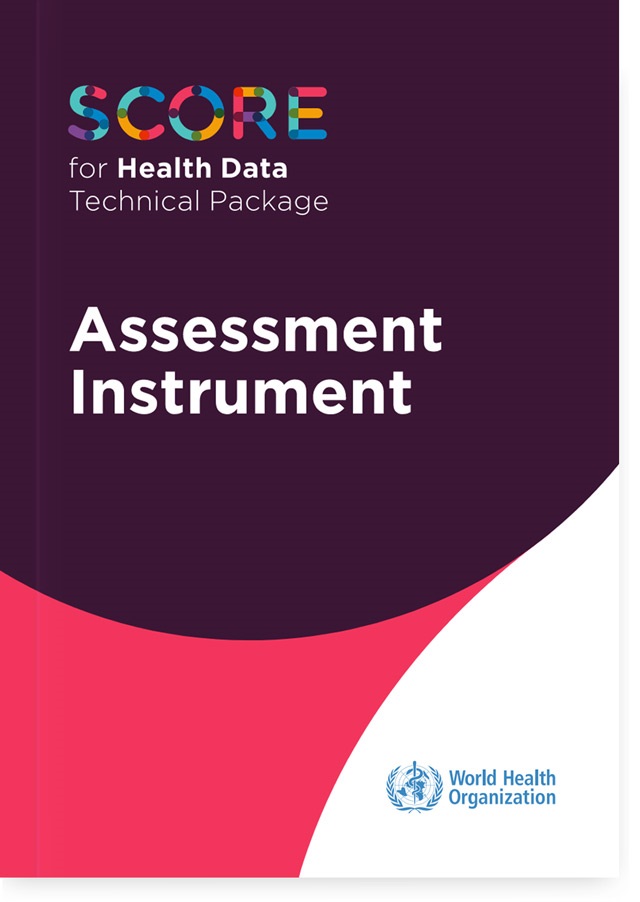
SCORE Assessment Country Summary
The SCORE assessment country summaries provide an overview of the countries' health information system, highlighting both strength and weakness.

Global report on health data systems and capacity, 2020
The first global assessment on the status and capacity of health information systems in 133 countries, covering 87% of the global population. It identifies gaps and provides guidance for investment in areas that can have the greatest impact on the quality, availability, analysis, accessibility and use of health data.
Available languages

Essential Interventions
The new SCORE for Health Data Technical Package forms the cornerstone of WHO’s efforts to strengthen health information systems worldwide, and countries’ capacity to generate, analyse and use health data (i.e. health status and health intervention). The package is published during one of the most data-strained public health crisis responses ever – that of the COVID-19 pandemic – which is placing a huge burden on already overstretched health and health-related data systems worldwide. The SCORE for Health Data Technical Package can guide countries to take action by providing a one-stop shop for best technical practices that strengthen health information systems, using universally accepted standards and tools.
To meet the increasingly complex demands on countries for health information, the SCORE for Health Data Technical Package brings together for the first time a set of the most effective interventions and tools for addressing critical data gaps and strengthening country health data for planning and monitoring health priorities (see “SCORE for Health Data Technical Package and the COVID-19 response” section for details on how the package can be used to help meet COVID-19 data needs in particular).
Available languages:

Tools and Standards for SCORE Essential Interventions
The new SCORE for Health Data Technical Package forms the cornerstone of WHO’s efforts to strengthen health information systems worldwide, and countries’ capacity to generate, analyse and use health data. The package is published during one of the most data-strained public health crisis responses ever – that of the COVID-19 pandemic – which is placing a huge burden on already overstretched health and health-related data systems worldwide.
To meet the increasingly complex demands on countries for health information, the SCORE for Health Data Technical Package brings together for the first time a set of the most effective interventions and tools for addressing critical data gaps, and strengthening country health data for planning and monitoring health priorities. The interventions selected are known to be the most effective, feasible, sustainable and scalable, and, like other technical packages, the aim of this package is to be able to communicate in a way that resonates with policy-makers and health leaders globally.
The SCORE for Health Data Technical Package comprises five key interventions. Interventions S, C and O focus on improving the availability and quality of data from critical data sources, while interventions R and E aim to enhance the synthesis, analysis, access and use of health data for action. Indicators and actions are included for each intervention.
The SCORE for Health Data Technical Package is not intended to replace existing detailed guidance on implementing various components of a health information system. Instead, it provides a coherent framework for countries to focus on priority interventions and elements, and points countries towards good and best practice actions and to existing and new universally accepted standards and tools.
Available languages:

Assessment Methodology, 2020 2nd ed
The SCORE for health data package uses five interventions: Survey populations and health risks; Count births, deaths and causes of death; Optimize health service data; Review progress and performance; Enable data use for policy and action. Each intervention
has a set of key elements, which is accompanied by a set of indicators. In total, there are 24 quantitative and qualitative indicators for assessing SCORE interventions at various levels.
The SCORE Assessment methodology, 2020 complements the SCORE Global report on health data and capacity, 2020, and explains how countries were assessed and scored by five interventions and the accompanying elements and indicators.
Available languages:

Assessment Instrument
Assessment Instrument A should be used if a country collects data through State Party Self-Assessment Annual Reporting (SPAR); Assessment Instrument B should be used if a Joint External Evaluation (JEE) instead of the SPAR is available for a country. If neither the SPAR nor the JEE are present, Assessment Instrument C should be adopted to use the scoring from a previous International Health Regulations (IHR) self-assessment.
If SPAR is applied for data collection, select file A; if JEE is applied, select file B; if neither SPAR nor JEE is applied, select file C to apply IHR self-assessment scores.
